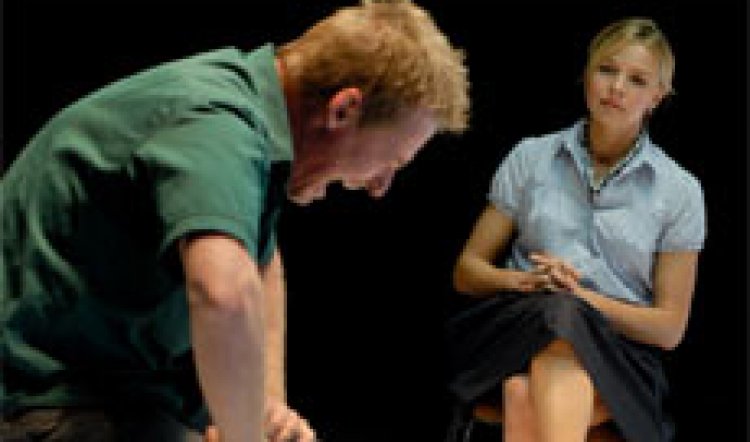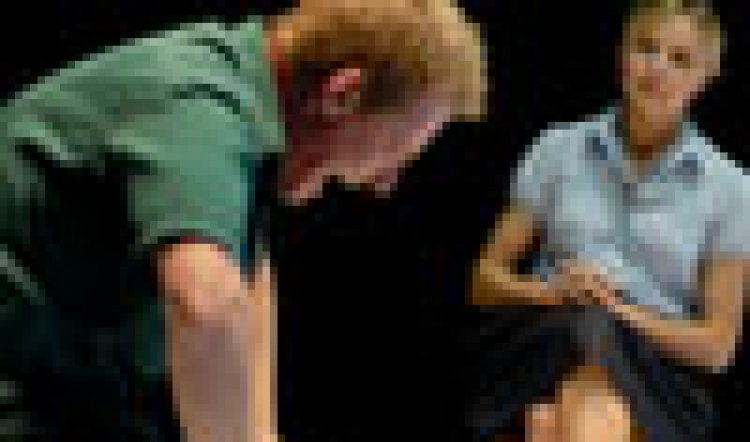
Toy Symphony
Toy Symphony, Belvoir St Theatre, November 10-December 22, 2007; ph: +612 9699 3444 or www.belvoir.com.au
Michael Gow's new play is a set of interlocking puzzles within puzzles and is absorbing and entertaining in equal measure. There are several layers to the puzzles: ordinary human foibles and relationships on top; beneath that are classic evocations of the riddles of suburbia, circa late-60s early 70s, but essentially timeless; and beneath that again, teases and mysteries about how elements of autobiography may or may not play a part in a writer's recurring themes and nightmares.;p>
The central figure in Michael Gow's new play, Toy Symphony is a playwright, Roland Henning (Richard Roxburgh). Henning has appeared in GowLand before: in Furious (1991) he was a writer saddled - haunted even - by a family and situations that bore a striking resemblance to parts of Away. Michael Gow himself lives every day with the undying affection and regard of Australians for that 1986 drama of family and summer holidays.
Further mischief is afoot in Toy Symphony in that Roland is also suffering something (not guilt, he insists) through having used a story - about a lost dog and its consequences - told to him by a woman who is now wreaking an odd kind of vengeance. (If this reminds you of Gow's Sweet Phoebe you will clearly do well at the next Michael Gow Kwiz Nite.)
Toy Symphony is his first full-length original play in ten years. Not surprising as Gow has been artistic director of Queensland Theatre Company since 1999 and that role has taken up most of his creative energy and imagination. His imagination has been simmering away, however, and when given a stir by his old friend and fellow suburban Sydney boy, Neil Armfield, this is what came bubbling up.
Toy Symphony is a startling and bold way to return to the stage. Henning is in the grips of something he refuses to call writer's block. He snaps and snarls and wrestles - figuratively - with his therapist, an absurdly young looking Justine Clarke (who would also look absurdly young if cast as a policewoman, but is in every other way a delight on stage). She absorbs his rage - expressed in knife-edge, smart-arse sarcasm - until he finally collapses into some semblance of honesty and vulnerability.
When he finally, reluctantly, tenderly, looks back into his youth to the boyhood friend who died, Henning's wistfulness for a time long gone is also weighted by the self knowledge that it was also the worst of times. His grim tenderness is an echo of Away's tragic father Harry when he said, "In a funny kind of way we're happy. Even while we're very, very sad."

In simple terms Toy Symphony is the story of Henning's life - and creative paralysis - and Gow allows him a full measure of exploration. He is at once lovable and a monster, kindly and as selfish as a six-year-old; Henning is a gift that Richard Roxburgh takes in both hands, unwraps and reveals facet by facet, ache by ache in a stage-filling, memorable performance.
He is dazzlingly supported by the wondrous Monica Maughan as three different elderly ladies of variously blessed and toxic disposition; Russell Dykstra also shines in a series of those boofheads of middle Australia in the middle of the last century that imprinted themselves so vividly in Gow's memory: a lemon-lipped headmaster, a bullyboy rugger bugger and so on. And Guy Edmonds is the delectable and tender object of young Roland's desires and older Roland's sadness.
Neil Armfield directs with his customary light hand and eye and ear for whimsy, which can drive actors to distraction in the process but - when it works on the right material as it does here - is the stuff of magic. The script could do with a light trim: Henning's over-long, soliloquising solo phone conversation, for instance, should go and the exposition it delivers handled in a less arch fashion: there are few devices outside magic realism more phoney than a long explanatory chat on a phone, even an actor as brilliant as Richard Roxburgh can't quite pull it off.
Nevertheless, the best thing about Toy Symphony is that it is theatrical and makes no apology for it. It's inventive, original, cheeky, mature, funny, sad, illuminating and clever. It fills its time and the space with assurance, much pleasure and food for thought.
Ralph Myers' set - a black emptiness - allows Roland Henning's fantasies and memories to fill in the blanks while leaving ideas and unexpected conclusions to hang in the air; Damien Cooper's lights are stark shafts of interrogatory white and Tess Schofield's costumes are equally well thought-out: down-to-earth and fantastical in equal parts. When the action finally arrives at the Toy Symphony you would have to have a hard heart and no experience of childhood to laugh and cry at its ambitions.



